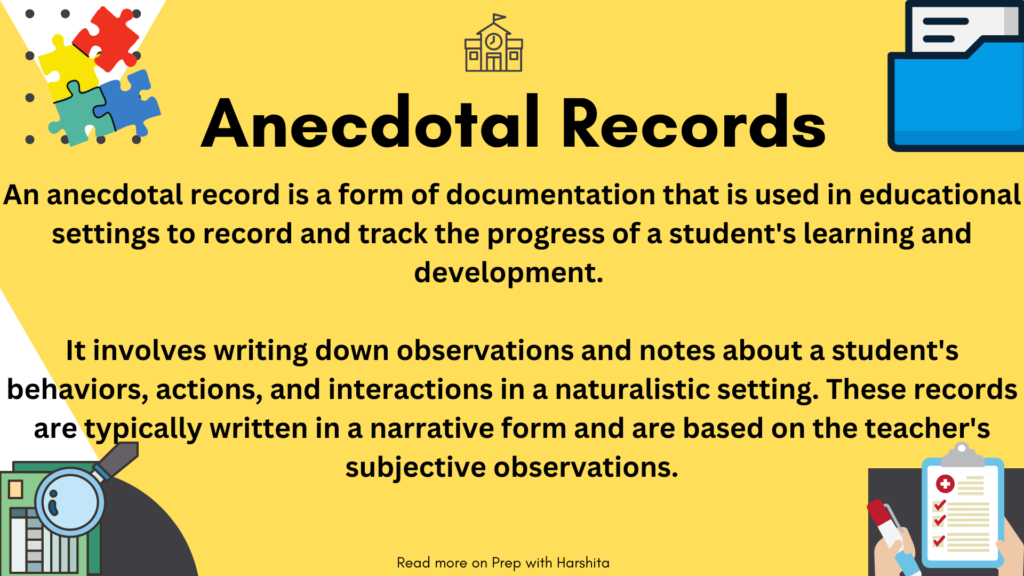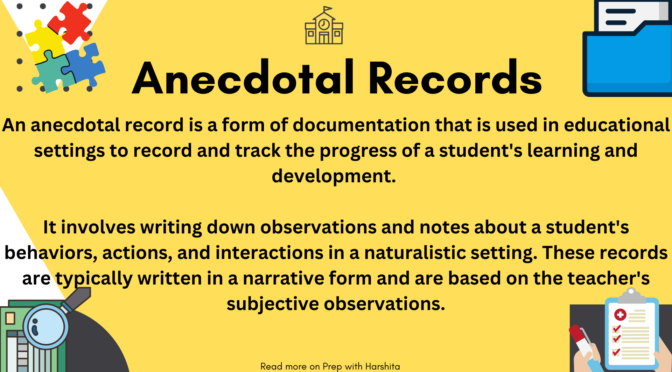An anecdotal record is a form of documentation that is used in educational settings to record and track the progress of a student’s learning and development. It involves writing down observations and notes about a student’s behaviors, actions, and interactions in a naturalistic setting. These records are typically written in a narrative form and are based on the teacher’s subjective observations.
Anecdotal records can be useful for a variety of reasons, such as providing evidence of progress or identifying areas of concern that may require additional support or intervention. They can also be used to communicate with parents or other educators about a student’s progress.
Anecdotal records are typically kept over a period of time and may include information about a student’s academic performance, social interactions, and emotional well-being. They can be used in conjunction with other forms of assessment, such as standardized tests or performance-based assessments, to provide a more complete picture of a student’s progress.
Also Read: Rating Scale
Here are some specific ways in which anecdotal records can be useful:
- Identify student strengths and areas of improvement: Anecdotal records can provide insights into a student’s strengths and areas for improvement. By observing and documenting a student’s behaviors, actions, and interactions, teachers can identify areas in which a student is excelling and areas that require additional support.
- Monitor progress: Anecdotal records can be used to track a student’s progress over time. This can be especially useful for students with learning difficulties or behavioral issues.
- Inform lesson planning: It can inform lesson planning by providing information about a student’s learning style, interests, and abilities. This can help teachers tailor their lessons to better meet the needs of individual students.
- Communicate with parents: Anecdotal records can be used to communicate with parents about their child’s progress. By sharing observations and notes with parents, teachers can provide a more complete picture of their child’s performance and development.
- Evaluate program effectiveness: It can be used to evaluate the effectiveness of educational programs or interventions. By comparing the progress of students who received a specific intervention to those who did not, teachers can determine whether the intervention was successful.



11 thoughts on “Anecdotal Records”